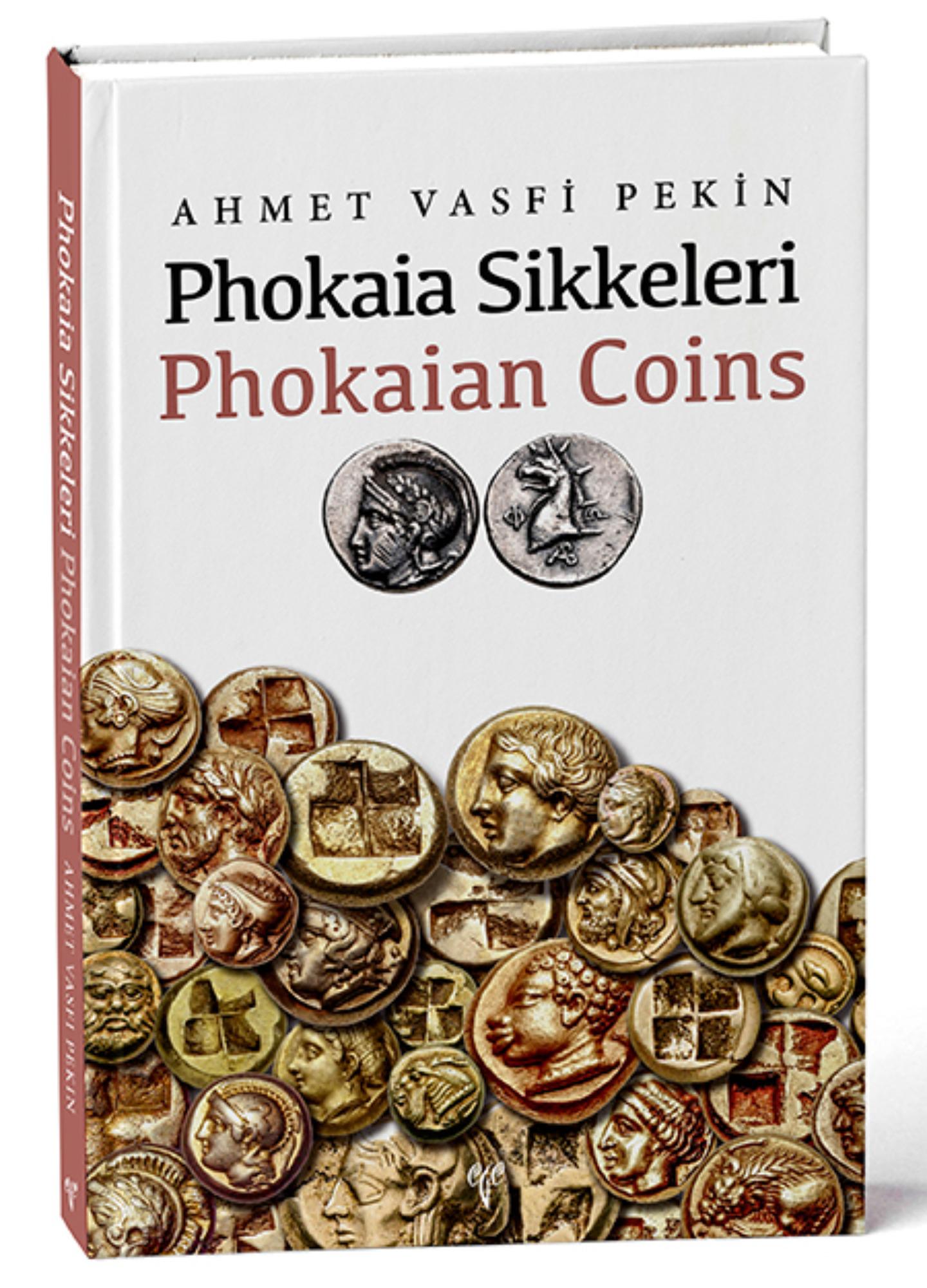Pekin, Ahmet Vasfi : Phokaian Coins / Phokaia Sikkeleri
€59.00
Available in 30 days, delivery time 1-3 days
"Pekin, Ahmet Vasfi : Phokaian Coins / Phokaia Sikkeleri"
Ahmet Vasfi Pekin,
Phokaian Coins / Phokaia Sikkeleri
Istanbul 2022
ISBN 978-625-8056-14-3
VIII + 249 S., zahlr. Farb- und S/W-Abb., 27,5 x 19,5 cm; kartoniert
zweisprachig englisch - türkisch
0 of 0 reviews
Average rating of 0 out of 5 stars
Login
Phokaia

Serhat Foça – Duygu S. Akar Tanrıver, Eski Smyrna Metal Buluntuları(Eski Smyrna Araştırmaları I)Istanbul 2025ISBN 978-625-8056-78-5XVI + 294 S., 50 Farb- und 50 S/W-Taf./ 50 colour and 50 b/w pls., 29,7 x 21 cm; broschiert/softcoverDie vorliegende Studie mit dem Titel „Studien zum antiken Smyrna I – Metallfunde“ untersucht detailliert die Gold-, Silber-, Bronze-, Blei- und Eisenfunde, die bei Ausgrabungen in der Stadt zwischen 1948 und 2023 zutage gefördert wurden und aus der Frühen Eisenzeit bis zur Klassischen Periode stammen.Die rund 900 Metallartefakte, die in öffentlichen und privaten Gebäuden des antiken Smyrna geborgen und in den Depots des Ausgrabungshauses des antiken Smyrna sowie des Archäologischen Museums von Izmir aufbewahrt werden, bilden eine reiche Sammlung, die in Hauptkategorien wie Waffen und Kriegsausrüstung, Schmuck, architektonische und bauliche Elemente, Möbelbestandteile, Fischereigeräte, Webgewichte, landwirtschaftliche und textile Werkzeuge, Jagdgegenstände, Figuren und Votivgaben sowie Vasen unterteilt ist. Diese Studie, die die Vielfalt der Metallfunde in der Stadt hervorhebt, untersucht auch die in der Stadt gewonnenen archäologischen Daten zur Herstellung dieser Artefakte.

Ömer Özyiğit, Phokaia IV – Athena Tapınağı Kazıları Işığında İon Mimarlığının DoğuşuIstanbul 2023ISBN 978-625-8056-61-7334 S./pp., 210 Farb- und S/W-Taf./210 colour and b/w-pls., 31,5 x 24 cm; kartoniert/hardcover
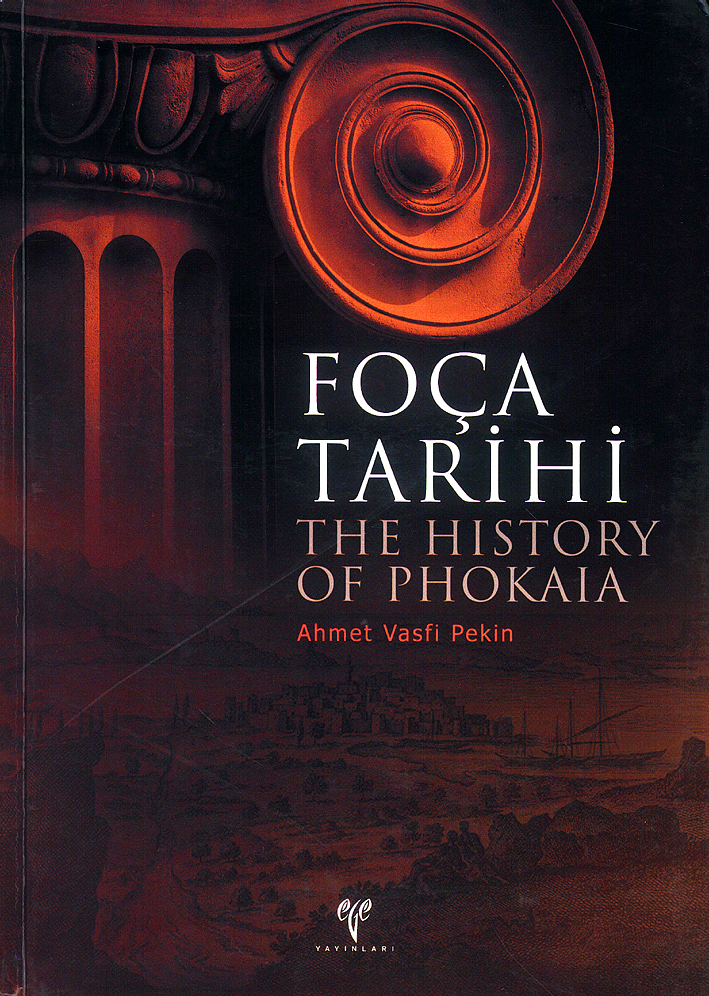
Ahmet Vasfi Pekin,The History of Phokaia / Foça Tarihi Istanbul 2015ISBN 978-605-4701-82-7XIV + 169 S., zahlr. Farb- und S/W-Abb., 27,5 x 20 cm; kartoniert
Numismatik

Mehmet Kayhan Murat,Bandırma Müzesi Geç Roma Sikkeleri Istanbul 2025ISBN 978-625-6212-47-3103 S./pp., zahlr. S/W-Abb./num. b/w-figs., 29,7 x 21 cm; broschiert/softcoverDiese Studie über Münzen der Spätantike im Museum von Bandırma umfasst insgesamt 389 Münzen der Spätantike aus dem Museum von Bandırma. Die untersuchten Münzen leisten einen wichtigen Beitrag zum Verständnis des Münzumlaufs und der Prägenetze dieser Epoche. İÇİNDEKİLER Önsöz Bibliyografya BİRİNCİ BÖLÜM Roma Dönemi’nde Sikke ve Darphane Gelişimi Roma Dönemi’nde Sikke Roma Darphaneleri İKİNCİ BÖLÜM İmparatorlar, İmparatoriçeler, Tanrılar, Tanrıçalar ile Soyut ve Somut Kişileştirmeler İmparatorların ve İmparatoriçelerin Kısa Biyografileri Tanrılar, Tanrıçalar ile Soyut ve Somut Kişileştirmeler ÜÇÜNCÜ BÖLÜM Katalog DÖRDÜNCÜ BÖLÜM Değerlendirme Genel Değerlendirme Sikkeler Üzerindeki Ön Yüz ve Arka Yüz Lejandları Konkordans Cetveli EKLER Ek I: Roma İmparatorluğu Kronolojisi Ek II: Katalogda Yer Alan Sikkelerin Darphanelerini Gösteren Harita LEVHALAR

Adnan Busuladžić,The Splendour of Ancient Greece. Pottery, Painted Vases, Sculpture, Arms and Armour, Jewellery, Glass, Coins from the Museum Collections of Bosnia and Herzegovina / Sjaj antičkih Grka. Keramičke Posude, Slikane Vaze, Skulpture, Oružje, Nakit, Staklo, Numizmatika iz Muzejskih Zbirki u Bosni i HercegoviniSarajevo 2020ISBN 978-9958-502-27-9388 S./pp., 171 S/W-Taf. / b/w-pls., 27,5 x 24 cm; kartoniert/hardcoverzweisprachig bosnisch - englischbilingual bosnian - english

N. Eda Akyürek Şahin – Roman Jacobek – Fatih Onur – Diether Schürr (Hrsg./eds.),Von Damaskus bis Rom. Wilhelm Müseler, Gesammelte Schriften.(Gephyra Monographs 7)Wien 2025ISBN 978-3-85161-320-9722 S./pp., zahlr. S/W-Abb. / num. b/w-figs., 29,7 x 21 cm; kartoniert / hardcoverDer Band "Von Damaskus bis Rom" versammelt 25 Beiträge des Numismatikres Wilhelm Müseler in deutscher und englischer Sprache, die in den Jahren 1990 bis 2025 erschienen sind sowie einen bislang unpublizierten Aufsatz.The volume “From Damascus to Rome” brings together 25 articles by numismatist Wilhelm Müseler in German and English, published between 1990 and 2025, as well as a previously unpublished essay.
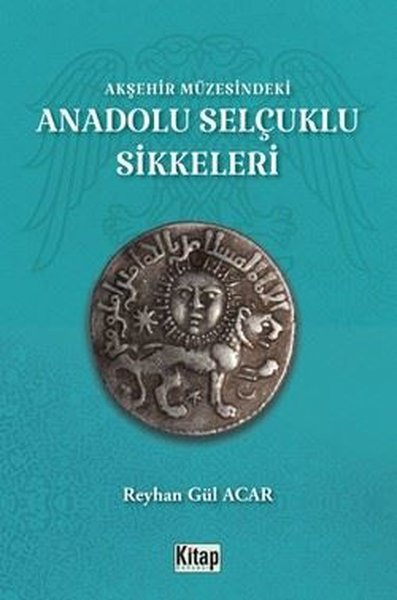
Reyhan Gül Acar, Akşehir Müzesindeki Anadolu Selçuklu SikkeleriIstanbul 2025ISBN 978-625-5940-65-0166 S./pp., zahlr. S/W-Abb./num. b/w-figs., 24 x 16 cm; broschiert/paperback
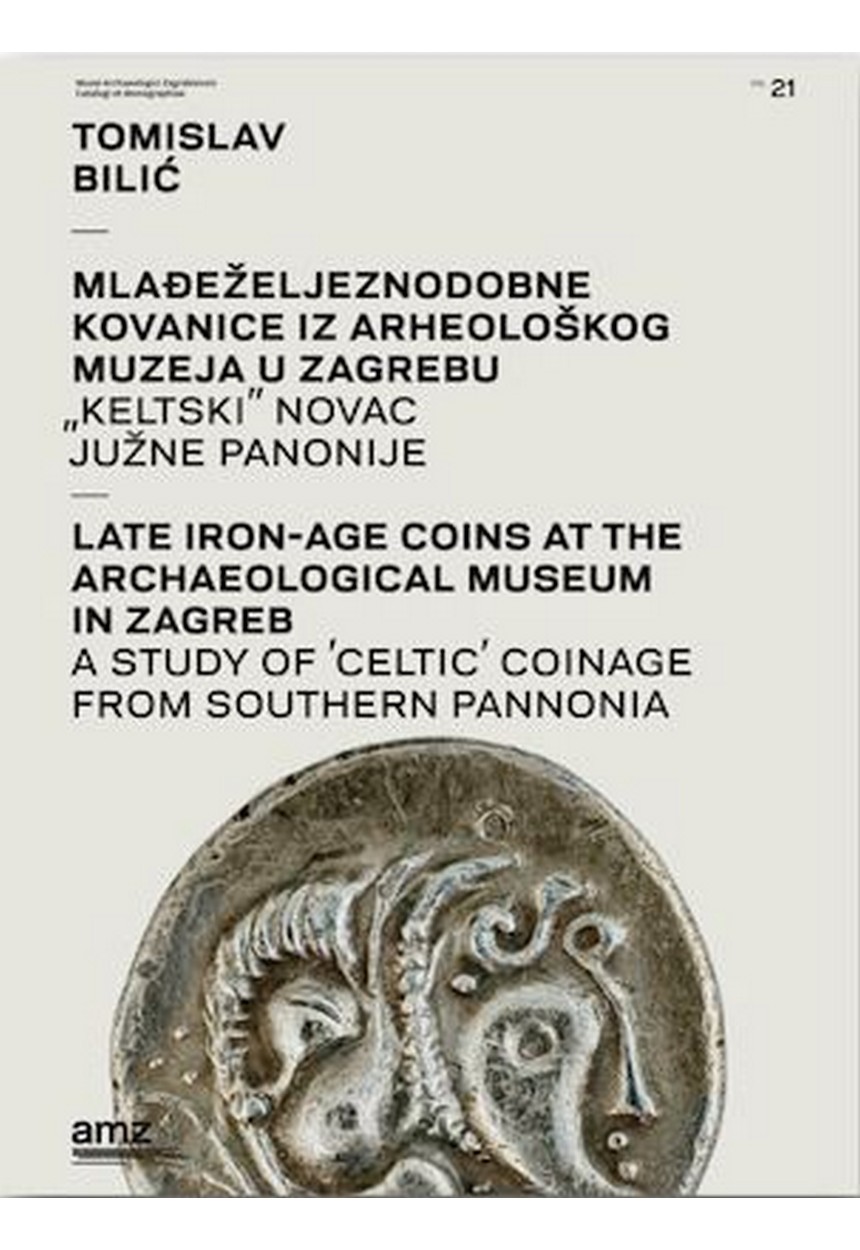
Tomislav Bilić,Late Iron-Age Coins at the Archaeological Museum in Zagreb. A study of the 'Celtic' Coinage from Southern Pannonia / Mlađeželjeznodobne kovanice iz Arheološkog muzeja u Zagrebu. „Keltski“ novac južne Panonije(Musei Archaeologici Zagrabiensis. Catalogi et Monographiae / Arheološkog muzeja u Zagrebu. Katalozi i monografije / Archaeological Museum in Zagreb. Catalogues and Monographs volumen / svezak / volume XXI)Zagreb 2024ISBN 978-953-8143-61-8ISBN 978-953-6335-26-8355 S./pp., zahlr. Farb- u. SW-Abb./num. colour and b/w-figs., 29,7 x 23 cm; kartoniert/hardcoverzweisprachig kroatisch - englischbilingual croatian - english
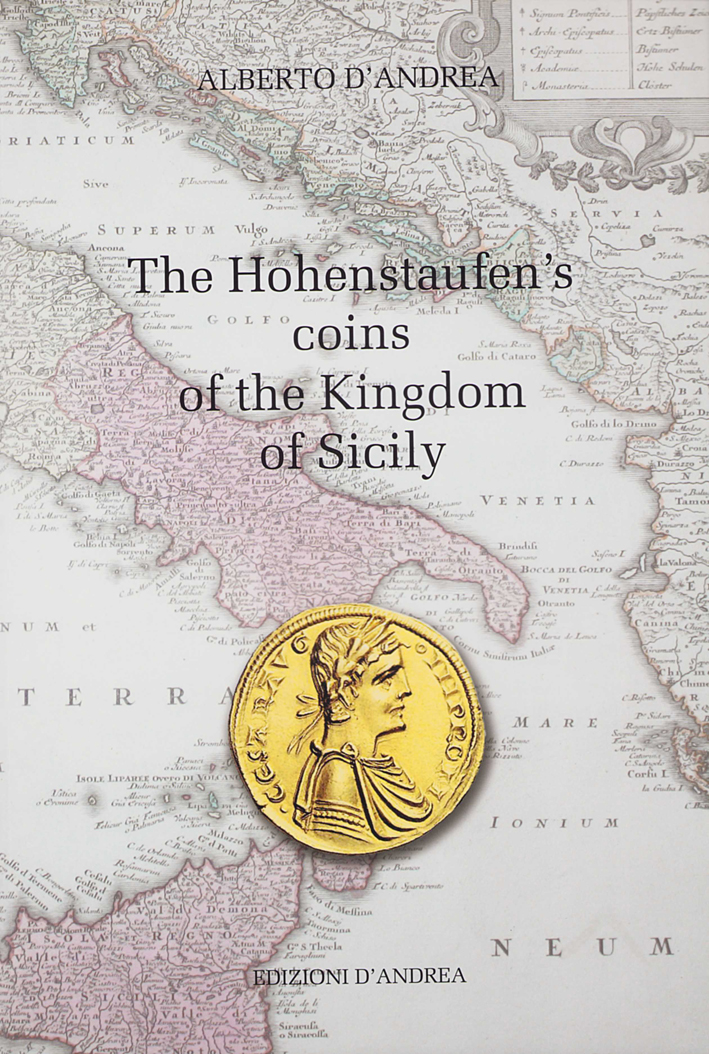
Alberto D'Andrea,The Hohenstaufen's coins of the Kingdom of SicilyRoseto degli Abruzzi 2013ISBN 978-88-98330-01-0112 S./pp., zahlr. SW- und Farbabb./num. colour and b/w-figs., 33 x 22 cm; broschiert/softcover
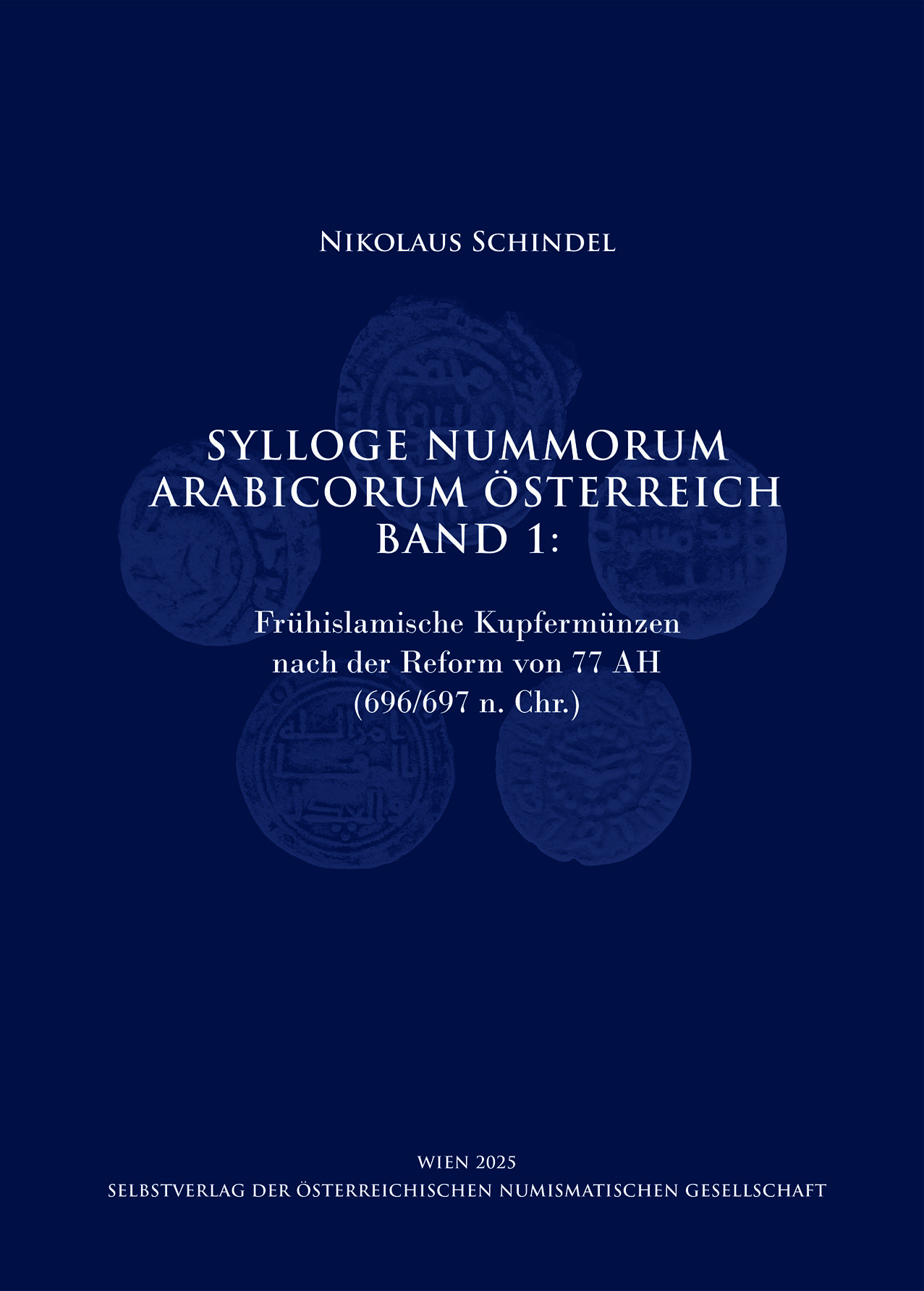
Nikolaus Schindel, Sylloge Nummorum Arabicorum. Österreich Band I:Frühislamische Kupfermünzen nach der Reform von 77 AH (696/697 n. Chr.)Wien 2025ISBN 978-3-200-10320-7370 S./pp., über 1400 Münzabbildungen/ more than 1440 figs. of coins, 29,7 x 21 cm; kartoniert/hardcover Der Band „Sylloge Nummorum Arabicorum Österreich Band I: Frühislamische Kupfermünzen nach der Reform von 77 AH (696/697 n. Chr.)“ stellt frühislamische Kupfermünzen vor, die von der Münzreform der umayyadischen Kalifen ‘Abd al-Malik (77 AH, 696/697 n. Chr.) bis in die Mitte des 8. Jhdts. n. Chr. reichen. Auf den Tafeln werden insgesamt 1434 Bronzemünzen in Syllogeform abgebildet. Darüber hinaus wird auf mehr als 150 Seiten ein allgemeiner Überblick über die Kupferprägung der Umayyadenzeit geboten und der hier präsentierte Bestand im größeren numismatischen Kontext diskutiert. Der Band stellt die erste umfassende Gesamtbehandlung der umayyadischen AE-Prägung seit John Walkers Katalog des British Museum aus dem Jahr 1956 dar, und auch wenn er nicht nach Vollständigkeit strebt, kann er als Referenzwerk für postreformatorische islamische Bronzemünzen bis ca. 750 n. Chr. verwendet werden. Eine englische Zusammenfassung präsentiert die wichtigsten Ergebnisse.
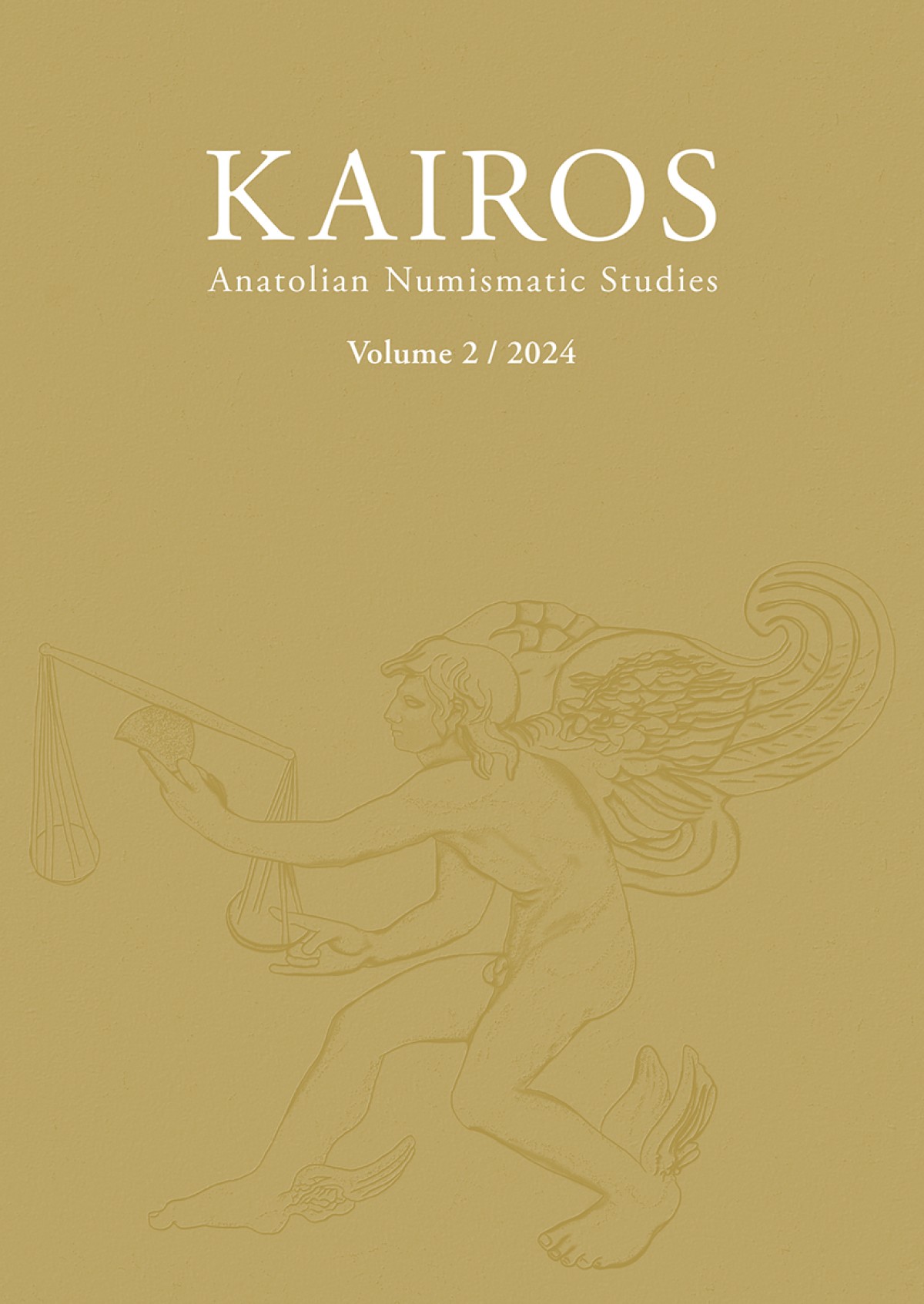
Kairos. Anatolian Numismatic Studies 2/2024Istanbul 2024ISSN 3023-7068IV + 143 S./pp., zahlr. S/W-Abb. / num. b/w-figs., 27,5 x 19,5 cm; broschiert / softcover
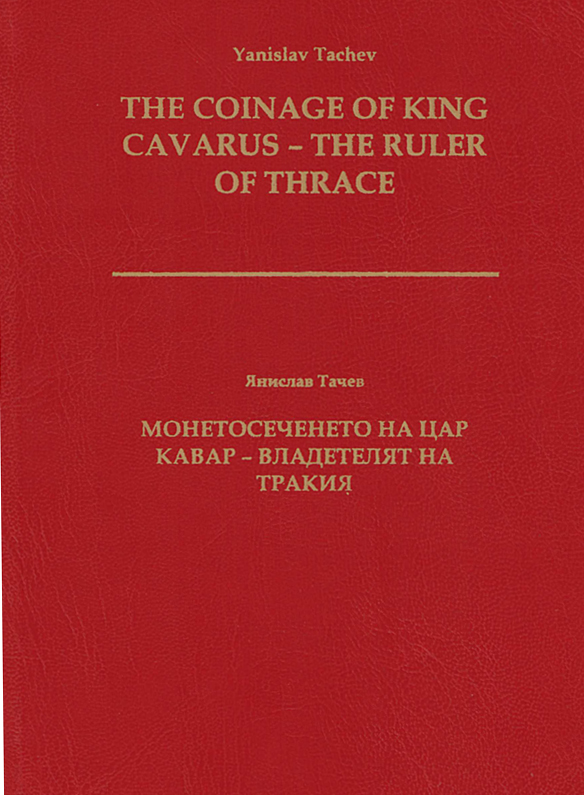
Yanislav Tachev, The Coinage of King Cavarus – The Ruler of ThraceSofia 2024ISBN 978-619-91692-6-1190 S./pp., zahlr. S/W-Abb./num. b/w-figs., 21 x 15 cm; kartoniert / hardcoverEnglisch mit Zusammenfassung in Bulgarisch /English with a summary in Bulgarian
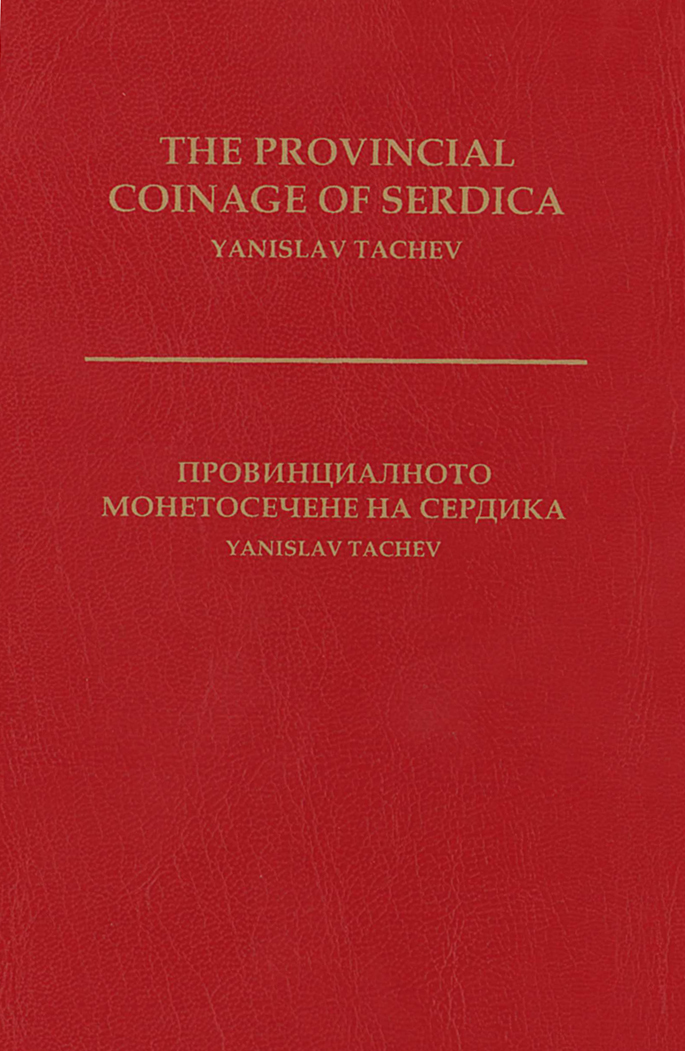
Yanislav Tachev, The Provincial Coinage of SerdicaSofia 2020 (2025)ISBN 978-619-90409-6-6450 S./pp., 206 S/W-Taf./206 b/w-pls., 21 x 15 cm; kartoniert / hardcoverEnglisch mit Zusammenfassung in Bulgarisch /English with a summary in Bulgarian Serdica is the only city on the territory of today's Bulgaria that issued coins in three different chronological periods. The city mint goes through three radically different phases. Initially it was created as a provincial mint, after a century of operation it was transformed into a branch of the central Roman mint (the end of the reign of Emperor Gallienus (253 – 268) and finally minted Ottoman coins (XVI – XVIII centuries)1. The subject of the proposed work is the provincial coinage of the city. The provincial coinage of Serdica began during the joint reign of the emperors Marcus Aurelius (161 – 180) and Lucius Verus (161 – 169) and with hiatuses of different lengths continued until the period of the independent (260 – 268) rule of Emperor Gallienus (253 – 268). During this one hundred and seven year period, coins were issued in the city for six emperors and their family members. From the conducted research, it is clear that the most intensive coinage was during the sovereign reign of Emperor Karakala (212 – 217).
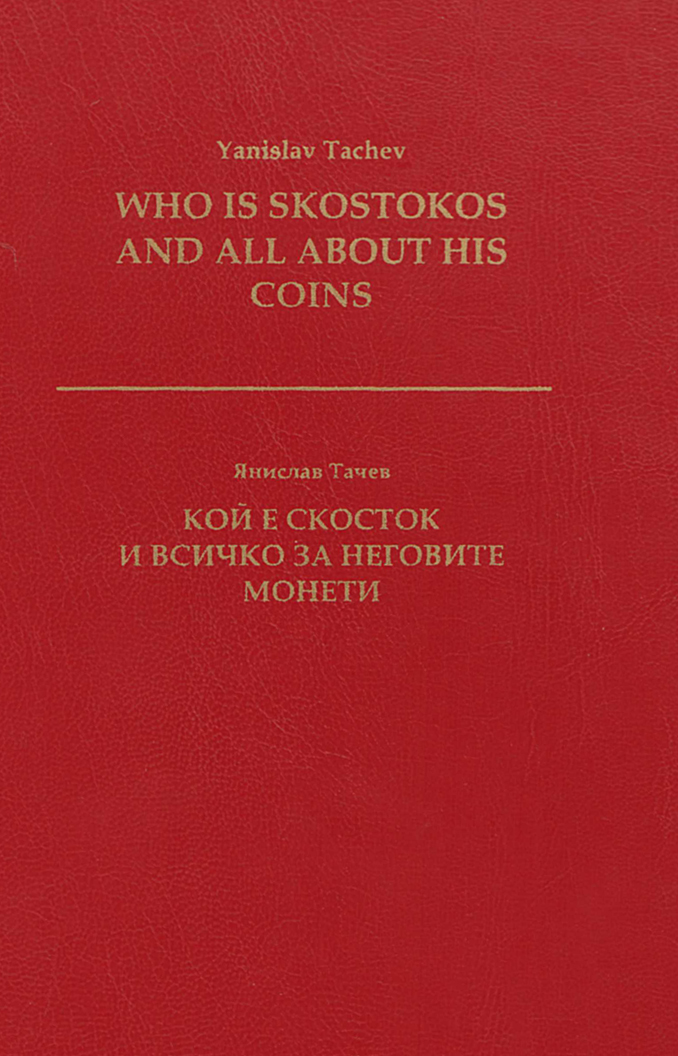
Yanislav Tachev, Who is Skostokos and all about his Coins Sofia 2024ISBN 978-619-91692-7-8186 S./pp., zahlr. S/W-Abb./num. b/w-figs., 21 x 15 cm; kartoniert / hardcoverEnglisch mit Zusammenfassung in Bulgarisch /English with a summary in Bulgarian The proposed study is devoted to the bronze and silver coins on the reverse seals of which the name ΣKOΣTOKОY is inscribed. The work includes all the coins (bronze rulers and silver city coins) known to date. The study is divided into two parts. The first part consists of two chapters. The first chapter deals with the individual aspects of the earliest coins. These are the bronze ruler coins of the type "head of Apollo / horseman, running right", inscription ΣKOΣTOKOY inscribed above horseman. In the second chapter of the first part, all known posthumous autonomies are covered Lysimachus tetradrachms and drachms signed in the cut with the inscription ΣKOΣTOKOY. In the second part of the study, the problems of the late ruler bronze coins of the type "bust of the ruler / horseman, walking right", inscription ΣKOΣTOKOY are examined. Over the past two centuries, many researchers have published specimens of both the bronze and silver coins with the inscription ΣKOΣTOKOY on the reverse stamps.
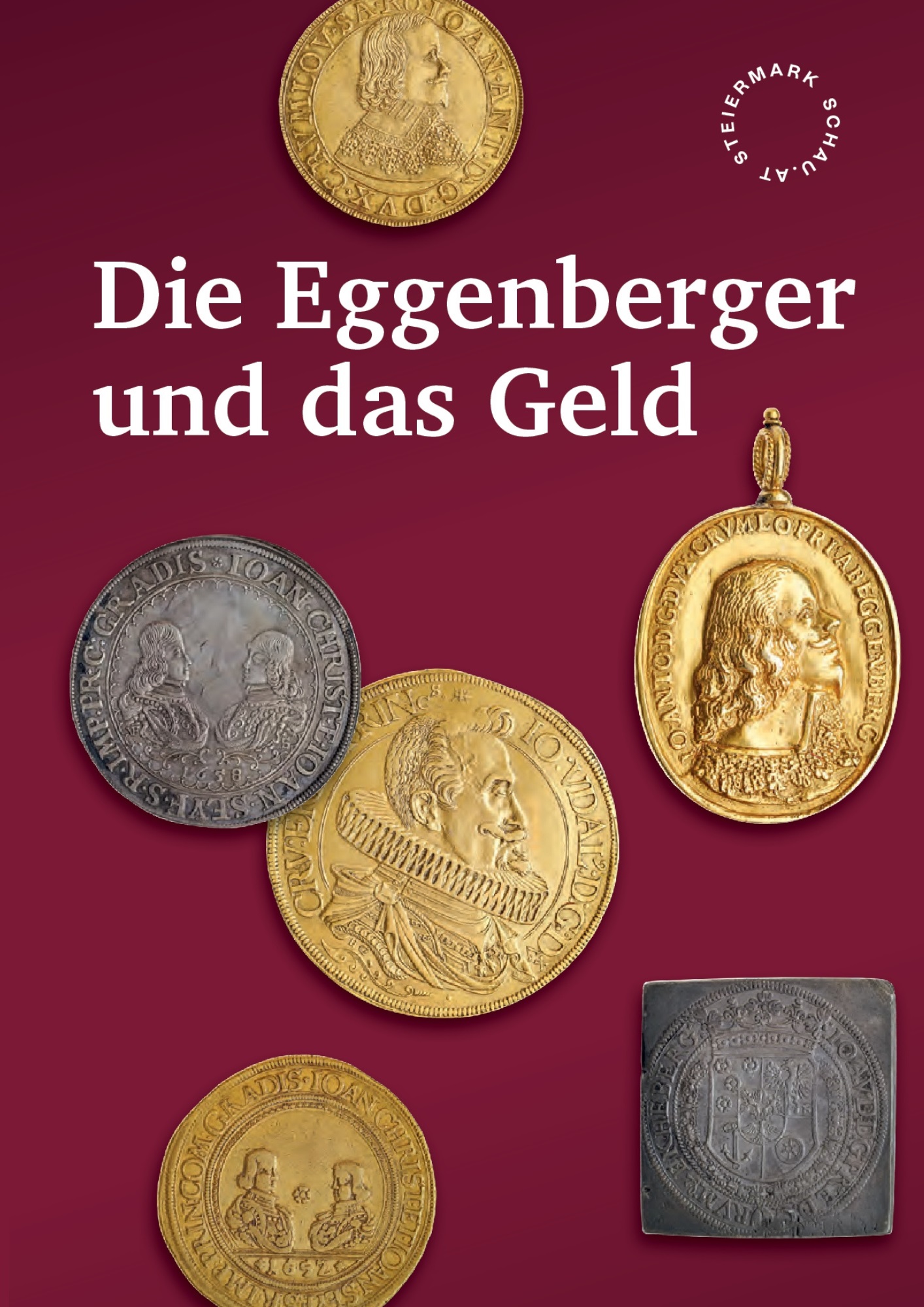
Karl Peitler – Marc Philipp Wahl,Die Eggenberger und das Geld(Begleitband zur Ausstellung im Rahmen der STEIERMARK SCHAU 2025 in Schloss Eggenberg, 26. April bis 2. November 2025)(Schild von Steier – Kleine Schriften 27)Graz 2025ISBN 978-3-903179-77-6175 S./pp., zahlr. Farbabb./num. colour figs., 23 x 16,5 cm; broschiert/softcoverDie Publikation beinhaltet Essays zu den Münzen und Medaillen der Familie Eggenberg und zu den Kippermünzen des Münzkabinetts des Universalmuseums Joanneum und bietet einen ausführlichen Katalogteil, in dem die in der Ausstellung gezeigten 284 Münzen und Medaillen aus dem Münzkabinett des Universalmuseums Joanneum in Wort und Bild erfasst sind. Er gliedert sich in vier Teile: 1. Münzen und Medaillen der Familie Eggenberg (Kat.-Nrn. 1- 46), 2. Reguläre Münzen der Kaiser Ferdinand II., Ferdinand III. und Leopold I. aus Münzstätten des österreichischen Reichskreises (Kat.-Nrn. 47-198), 3. Münzen der Kipperzeit aus Münzstätten des Heiligen Römischen Reiches (Kat.-Nrn. 199-277) und 4. Weitere Münzen und Medaillen (Kat.-Nrn. 278-284). Zur Ausstellung: Im Jahr 1625 gewährte Kaiser Ferdinand II. Hans Ulrich von Eggenberg und seinen Nachkommen das Privileg, Gold- und Silbermünzen mit ihren eigenen Bildnissen und Namen zu prägen. Knapp über 60 Jahre lang machten die Eggenberger von ihrem Prägerecht Gebrauch und stellten Dukaten, Taler, Gulden und Groschen her. Heute sind diese Münzen einzigartige Raritäten.Das Münzkabinett verfügt durch seine weit in das 19. Jahrhundert zurückreichende Sammlungshistorie über hervorragende Zeugnisse für die Prägetätigkeit der Eggenberger.In der Sonderausstellung werden Aufstieg, Glanz und Niedergang der Dynastie der Eggenberger anhand dieser Münzen dargestellt. Darüber hinaus werden Beispiele für die Vielfalt der Münzprägung im Heiligen Römischen Reich des 17. Jahrhunderts präsentiert.Es wird aber auch der geldgeschichtliche Hintergrund beleuchtet, als es am Beginn des Dreißigjährigen Krieges zum Zusammenbruch des Münzwesens kam und Kaiser Ferdinand II. eine Finanzkrise bewältigen musste, die einem Staatsbankrott gleichkam.Außerdem wird die Verbindung Hans Ulrichs von Eggenberg zum Netzwerk eines Konsortiums thematisiert, an das der Kaiser das Münzwesen in Böhmen, Mähren und Österreich verpachtete und das durch die Herstellung von schlechten Münzen hohe Gewinne erzielte.
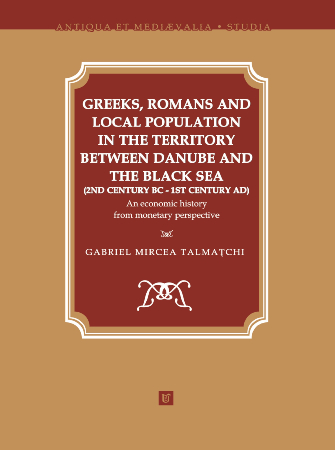
Gabriel Mircea Talmațchi,Greeks, Romans and local population in the territory between Danube and the Black Sea (2nd century BC-1st century AD). An economic history from monetary perspective Iaşi 2024ISBN 978-606-714-878-7468 S./pp., Farb- und S/W-Abb./colour and b/w-figs., 21 x 15 cm; broschiert/softcover
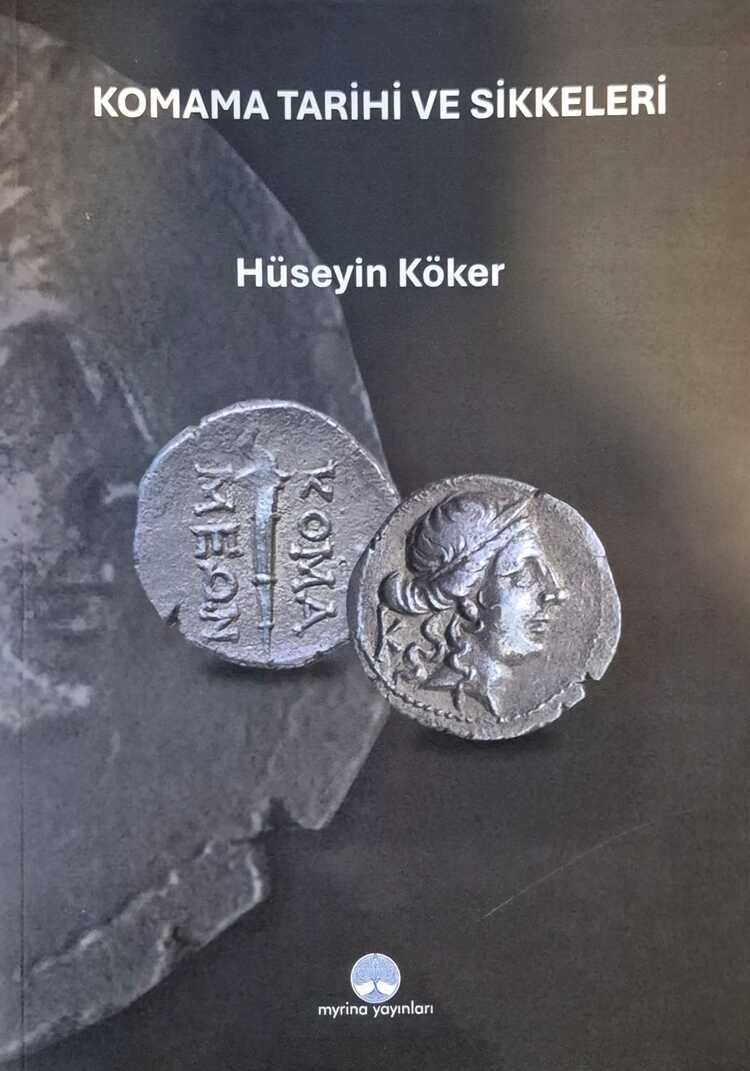
Hüseyin Köker,Komama Tarihi ve SikkeleriAnkara 2024ISBN 978-625-6872-37-6XIV + 240 S./pp., 22 Farbtaf./22 colour pls., 28 x 20 cm; broschiert/softcover
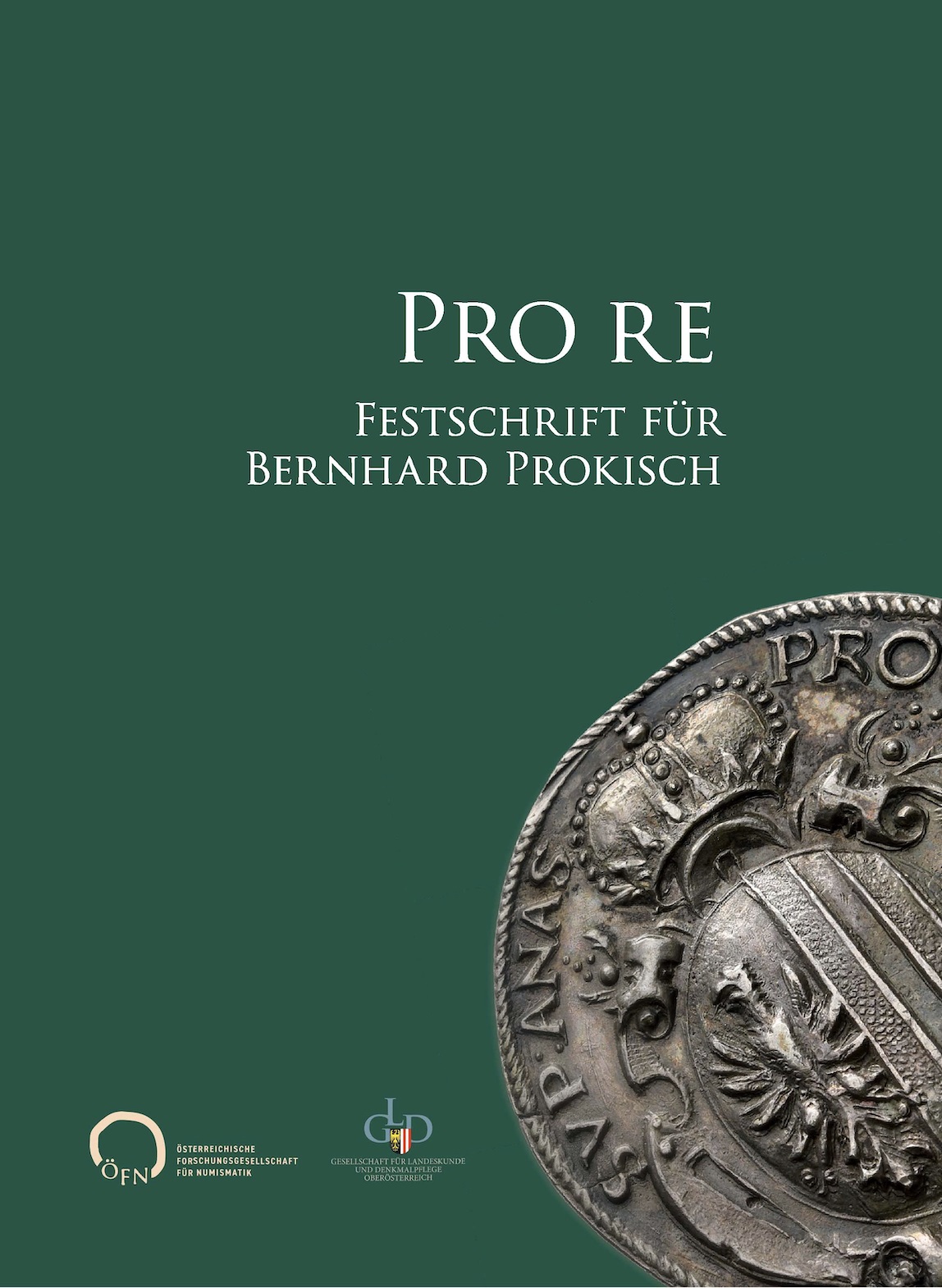
Österreichische Forschungsgesellschaft für Numismatik – Gesellschaft für Landeskunde und Denkmalpflege Oberösterreich (Hrsg.) ,PRO RE. Festschrift für Bernhard Prokisch.(Veröffentlichungen des Institutes für Numismatik und Geldgeschichte, Band 27)Wien 2025ISBN 978-3-9504268-8-5500 S./pp., zahlr. Farb- und S/W-Abb./num. colour and b/w-figs., 30,5 x 21,5 cm; kartoniert/hardcover Die Österreichische Forschungsgesellschaft für Numismatik und die Gesellschaft für Landeskunde und Denkmalpflege Oberösterreich haben sich zusammengefunden, um Herrn Priv.-Doz. Dr. Bernhard Prokisch diese Festschrift zum Übertritt in den Ruhestand zu widmen. Der Titel spricht eine der Grundhaltungen seines beruflichen und wissenschaftlichen Lebens an: stets PRO RE (immer für die Sache). Die zahlreichen und vielfältigen Beiträge dokumentieren sein wissenschaftliches Interesse und Wirken.
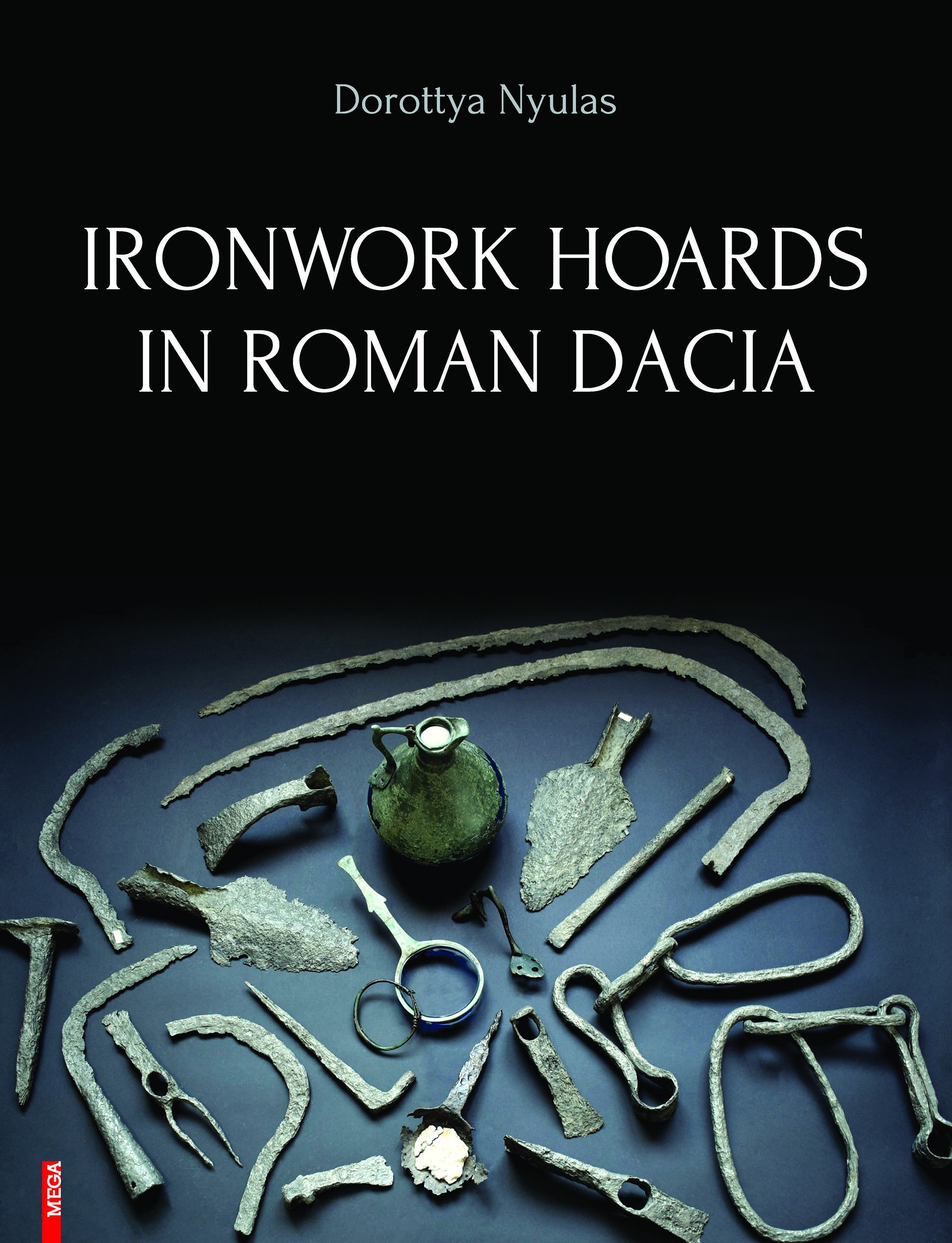
Dorotty Nyulas, Ironwork Hoards in Roman DaciaCluj – Napoca 2024ISBN 978-606-020-841-9336 S./pp., Farb- und S/W-Abb./colour and b/w-figs., 28 x 22 cm; kartoniert/hardcover The present volume is an improved and slightly rearranged version of the author’s doctoral thesis, which was publicly defended at the Babeş-Bolyai University, Cluj-Napoca, in September 2023. The objective of the thesis was the in-depth analysis of hoarding and depositing ironwork in Roman Dacia through a detailed re-examination and comparative study of the known assemblages. While the terminology regarding hoards is far from settled, in this work, ‘hoard’ and ‘deposition’ were used as general terms denoting collections of objects found as a group, associated with a single context. The word ‘hoard’ was mainly used to refer to assemblages that were rather clearly concealed, whereas I preferred ‘deposition’ as a more neutral term in the case of collections where a ritual background might be supposed. However, every time I wished to indicate an interpretation, this was emphasised through adjectives, such as safety hoards, votive depositions etc. Occasionally, to further stress the inclusion of all assemblage types, both terms were listed (‘hoards and depositions’), but mainly they are used as synonyms. ‘Ironwork’ is more easily defined; it stands for any type of object or fragment made of iron, ranging from tools and household items to scrap. Consequently, ironwork hoards are collections discovered as closed assemblages consisting of (almost exclusively) iron objects and fragments.
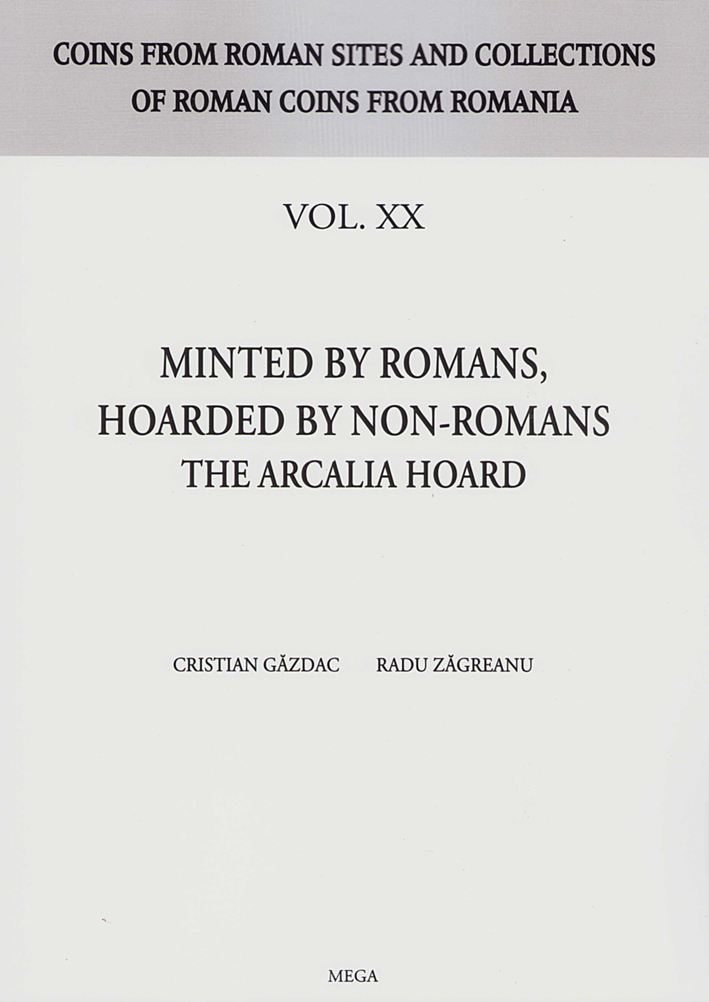
Cristian Găzdac – Radu Zăgreanu,Minted by Romans, Hoarded by Non-Romans. The Arcalia Hoard(Coins from Roman Sites and Collections of Roman Coins from Romania, vol. XX)Cluj-Napoca 2025ISBN 978-606-020-909-6120 S./pp., zahlr. S/W-Abb./num. b/w-figs., 29,7 x 21 cm; broschiert/softcover
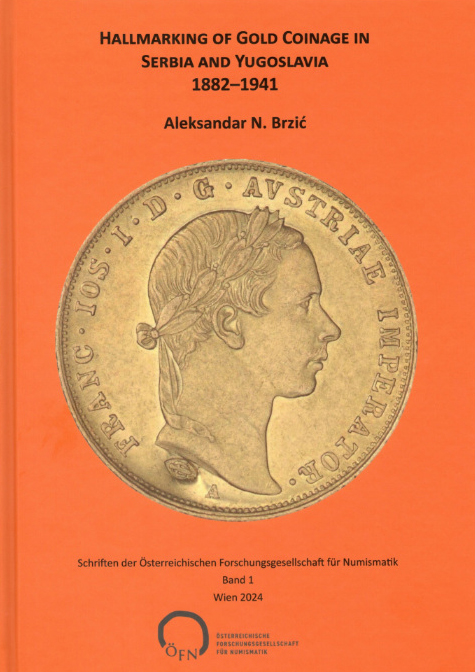
Aleksandar N. Brzić, Hallmarking of Gold Coinage in Serbia and Yugoslavia 1882–1941(Schriften der Österreichischen Forschungsgesellschaft für Numismatik, Band 1)Wien 2024ISBN 978-3-9504268-7-8248 S./pp., zahlr. Abb./num. figs., 30 x 21,5 cm; kartoniert/hardcover Between 1882 and 1941, Kingdoms of Serbia and Yugoslavia hallmarked a great amount of gold coinage. This somewhat peculiar practice was regulated by law and executed by state offices using several hallmarks, some of which are properly documented and presented here for the first time. The author describes not only the development of the hallmarking practice itself, but also its historic and ethnographic backgrounds, in particular the use of gold ducats in the ethnic jewellery of the region. Based mainly on his former collection, fully presented here in high-quality colour photographs, this book, again for the first time, provides a full catalogue of all hallmarks used in different assay offices and all hallmarked gold coins known to the author.
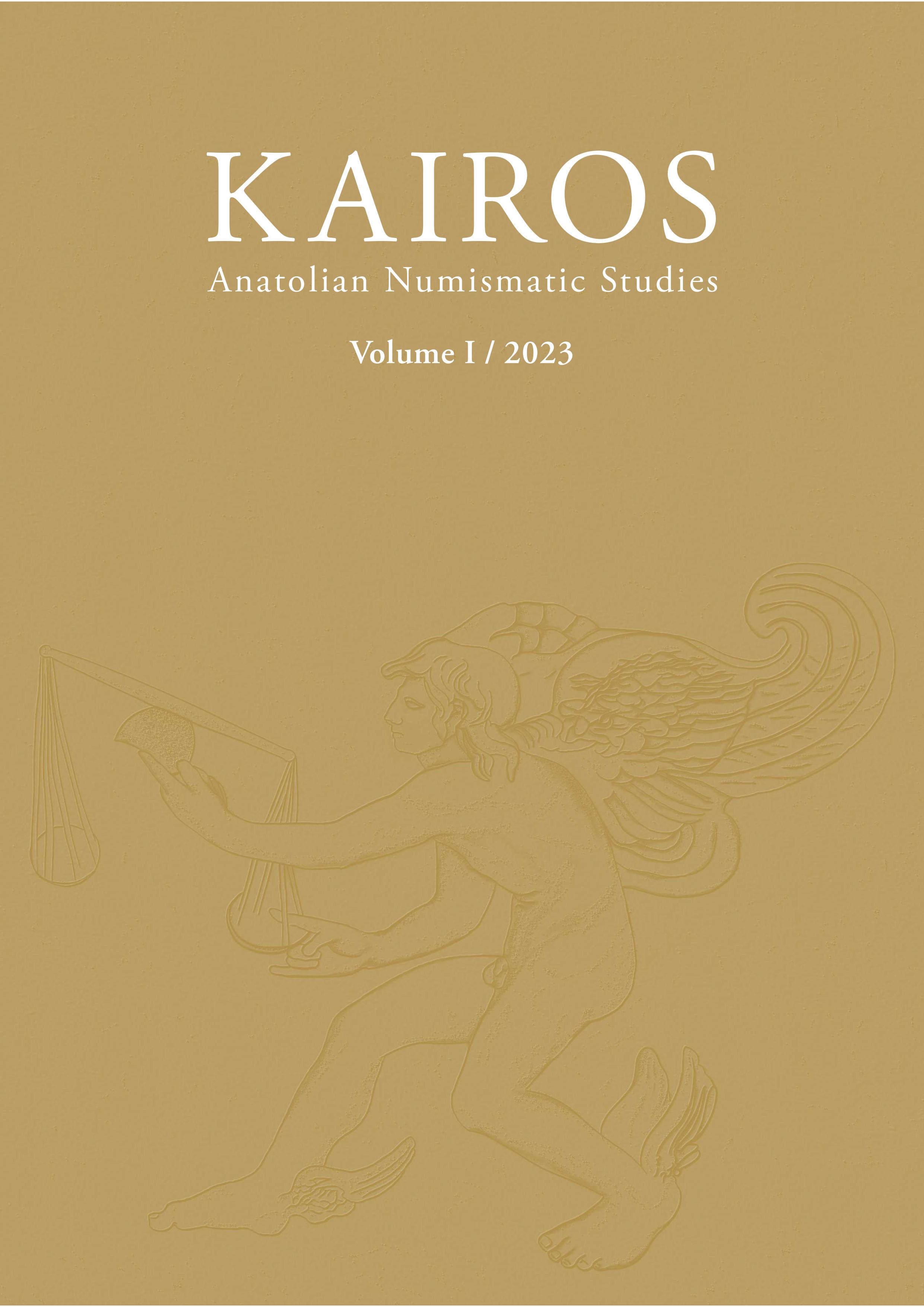
Kairos. Anatolian Numismatic Studies 1/2023Istanbul 2023ISSN 3023-7068XII + 162 S./pp., zahlr. S/W-Abb. / num. b/w-figs., 27,5 x 19,5 cm; broschiert / softcover
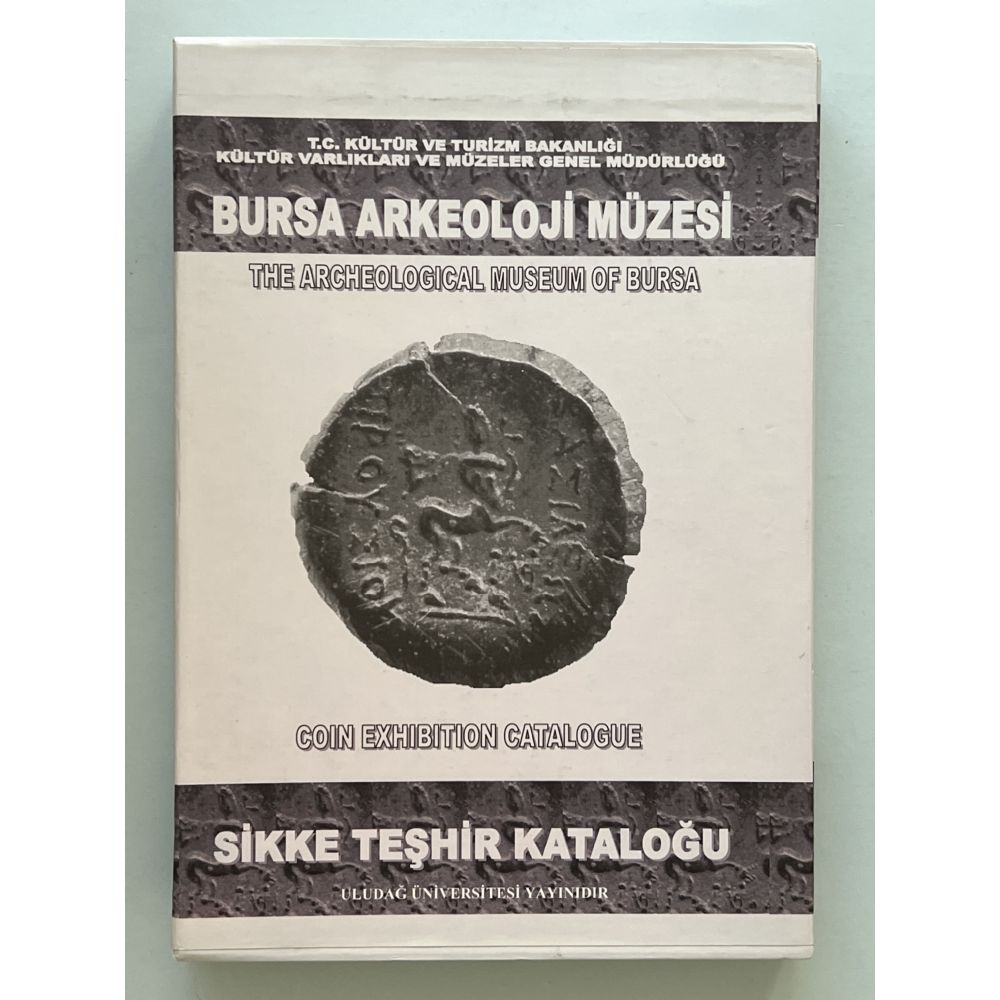
Recep Okçu, The Archaeological Museum of Bursa. Coin Exhibition Catalogue / Bursa Arkeoloji Müzesi. Sikke Teşhir KataloğuBursa 2005ISBN 978-975-6149-24-9XII + 210 S./pp., zahlr. Farbabb./num. colour figs, 26,5 x 18,5 cm; kartoniert mit Schutzumschlag / hardcover with dust jacket
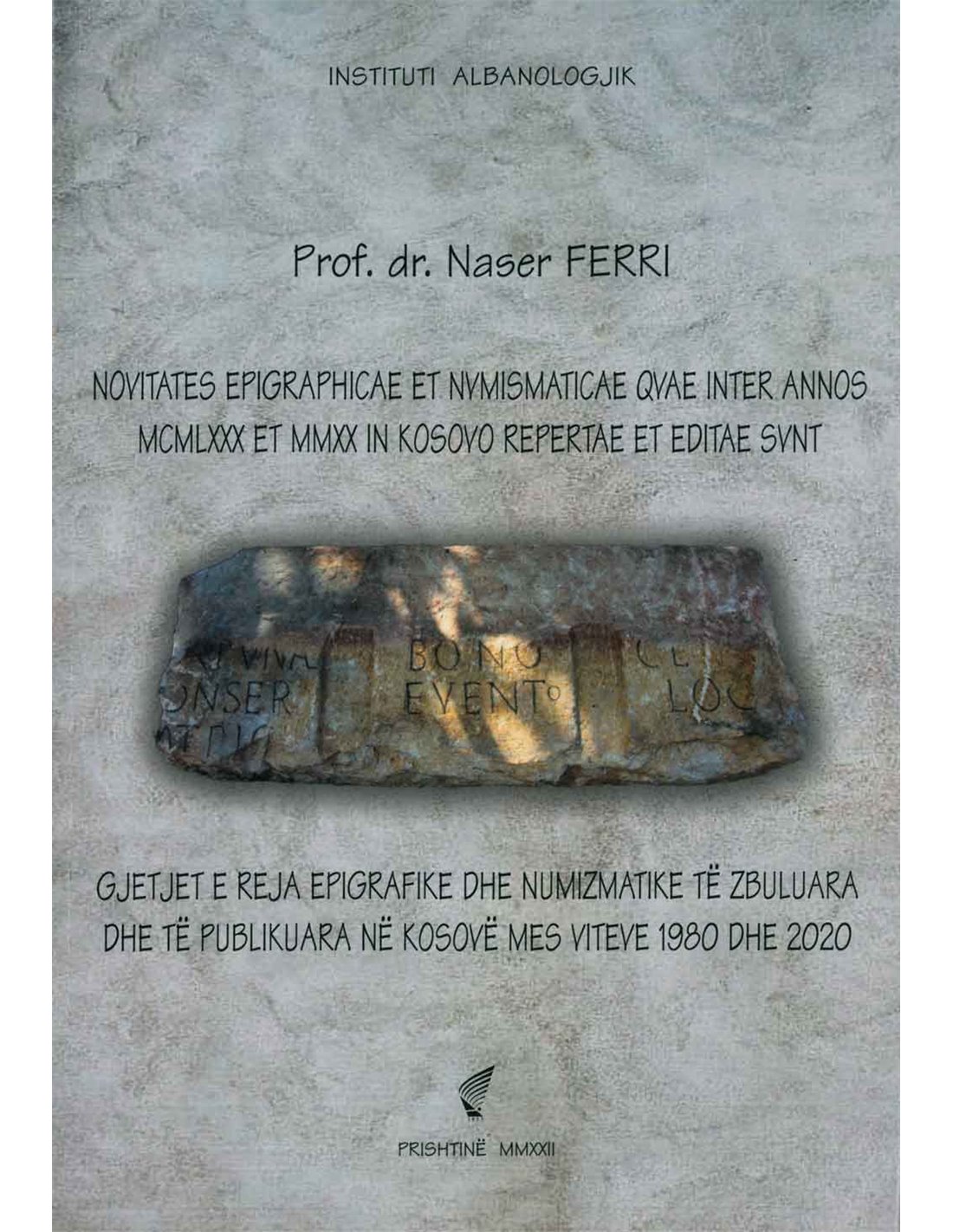
Naser Ferri, Gjetjet e reja epigrafike dhe numizmatike të zbuluara dhe të publikuara në Kosovë mes viteve 1980 dhe 2020 (= Novitates epigraphicae et numismaticae quae inter annos MCMLXXX et MMXX in Kosovo repertae et editae sunt / New epigraphic and numismatic finds discovered and published in Kosovo between the years 1980 and 2020)Prishtinё 2022ISBN 978-9951-24-164-9422 S./pp., zahlr. S/W-Abb./num. b/w-figs., 24 x 17 cm; broschiert/softcover albanisch mit Zusammenfassung in englischer Sprache / albanian with summary in english
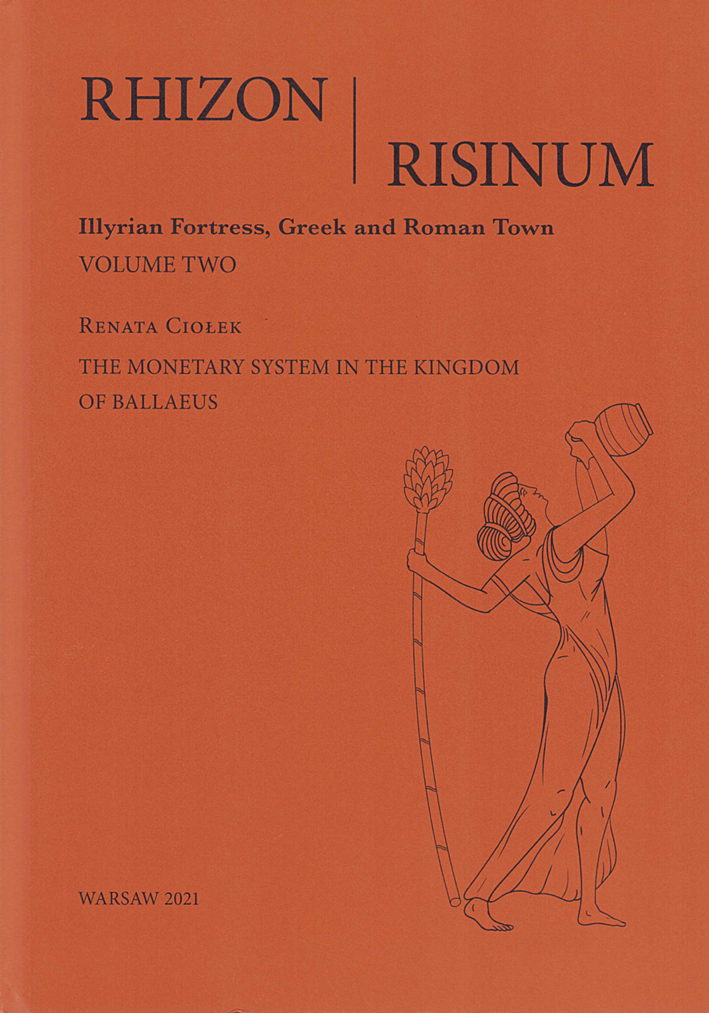
Renate Ciołek, The Monetary System in the Kingdom of Ballaeus(Rhizon / Risinum : Illyrian Fortress, Greek and Roman Town, volume 2)Warsaw 2021ISBN 978-83-958222-1-6 118 S./pp., zahlr. Farb- und S/W-Abb./num. colour and b/w-figs., CD-ROM, 29,7 x 21 cm; kartoniert/hardcover
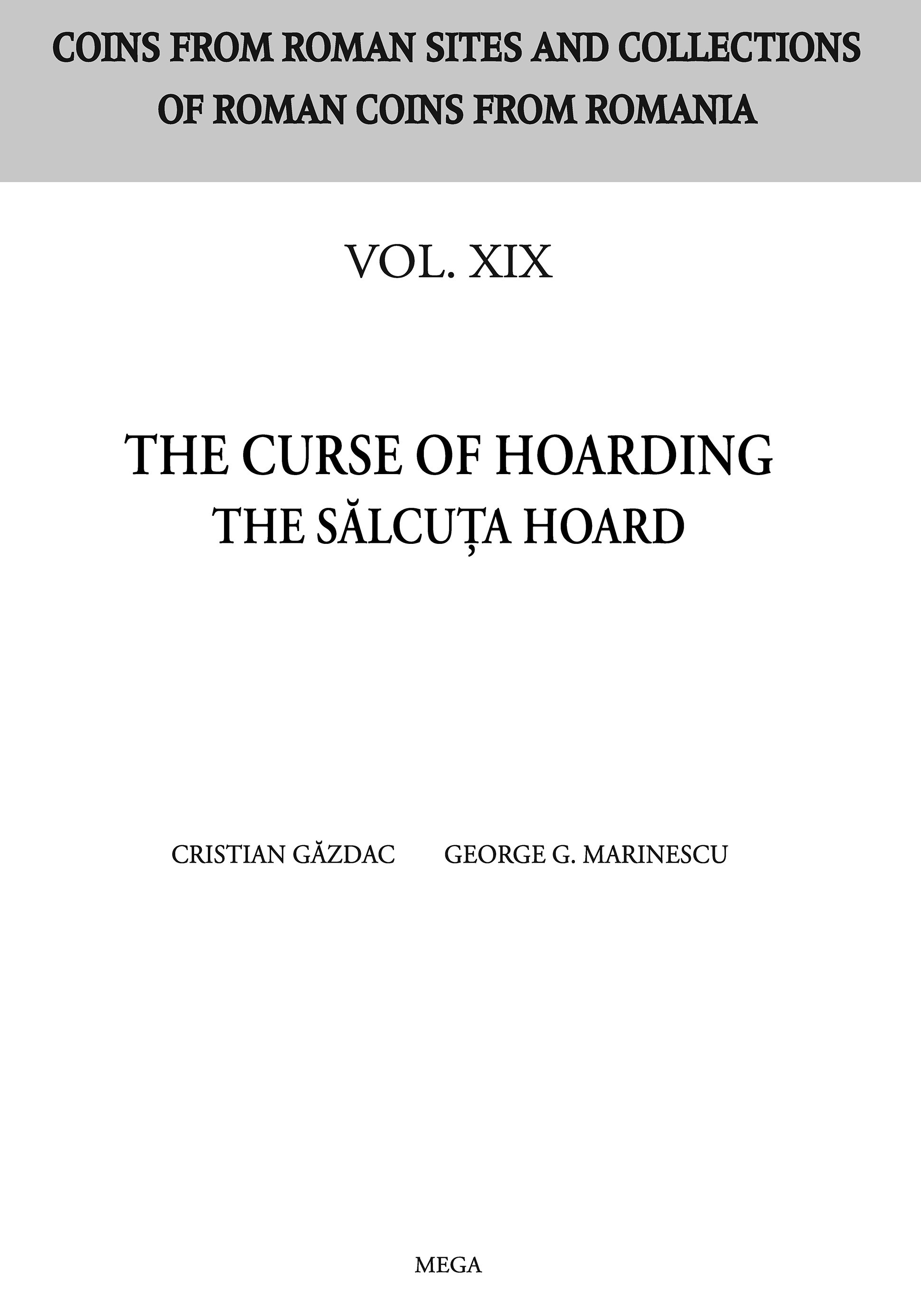
Cristian Găzdac – George G. Marinescu,The Curse of Hoarding: The Sălcuța Hoard(Coins from Roman Sites and Collections of Roman Coins from Romania, vol. XIX)Cluj-Napoca 2024ISBN 978-606-020-793-1174 S./pp., zahlr. S/W-Abb./num. b/w-figs., 29,7 x 21 cm; broschiert/softcover
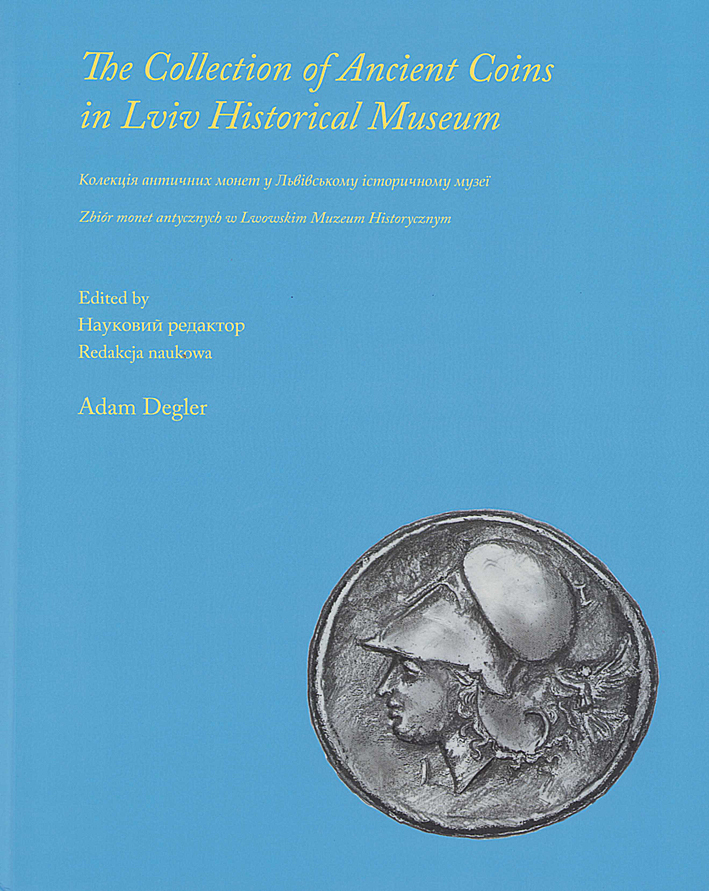
Adam Degler (ed.), The Collection of Ancient Coins in Lviv Historical MuseumWrocław 2023ISBN 978-83-950094-5-7442 S./pp., zahlr. Farb- und S/W-Abb./num. colour and b/w-figs., 28 x 22 cm; kartoniert/hardcover

